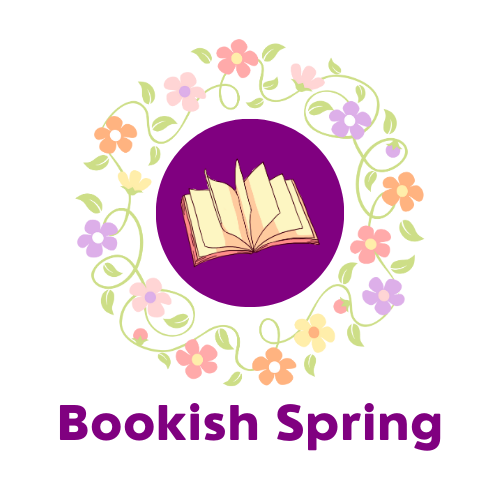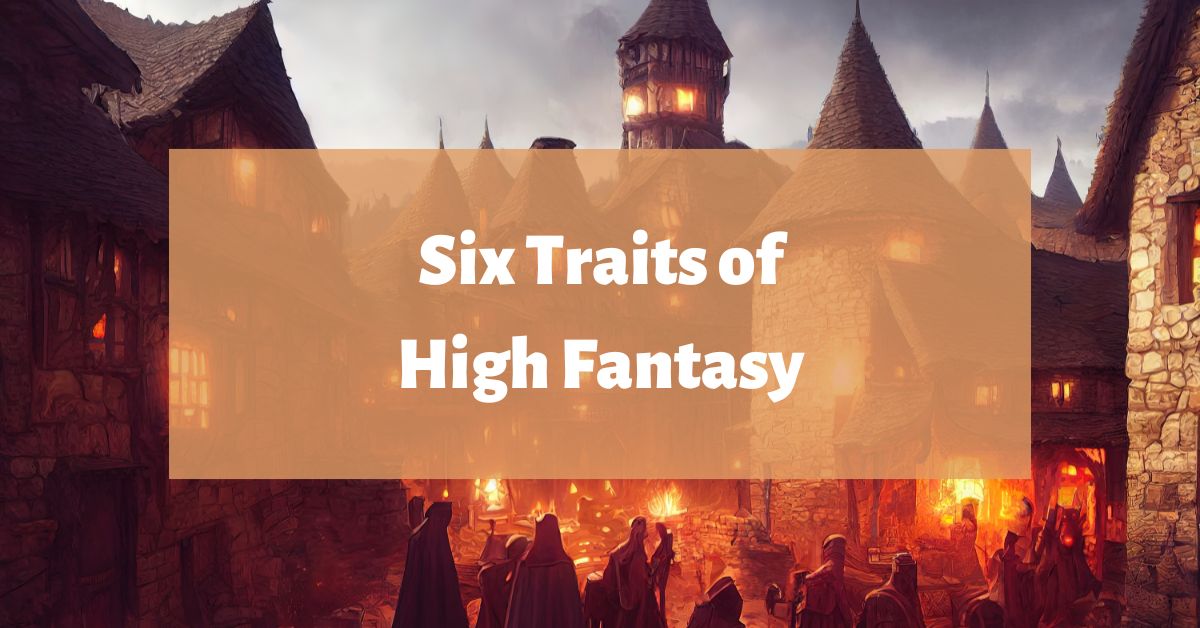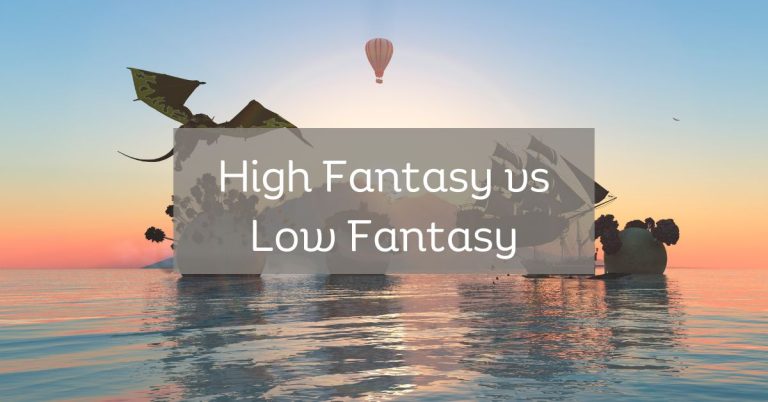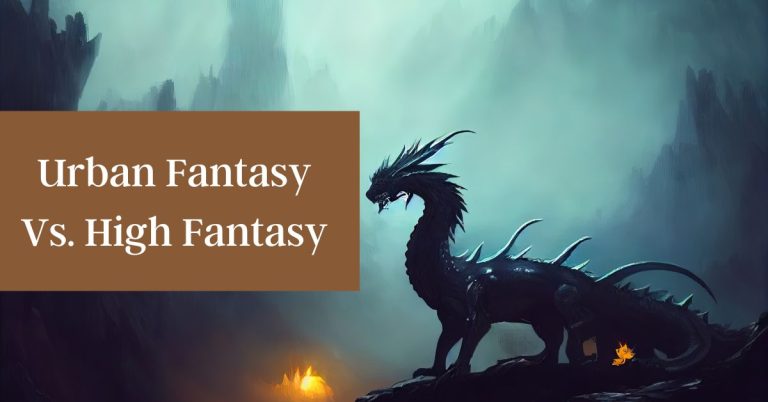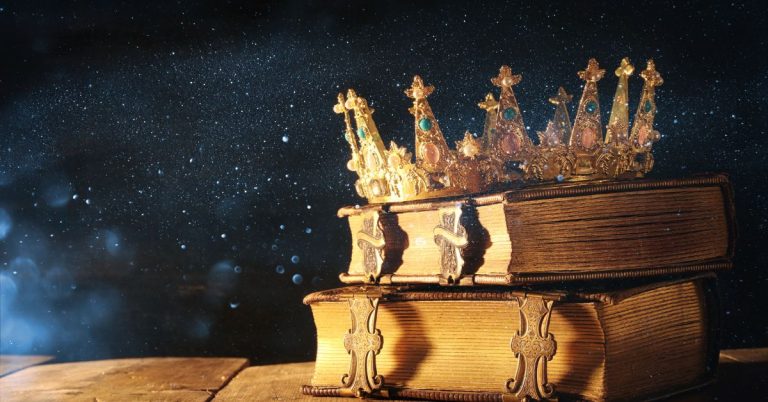High Fantasy Novels: Six Traits of High Fantasy
Books have been the only thing that has kept me focused since I was a child. The delight I had when I sat down and turned the first page of a new novel was unparalleled. The excitement of beginning a trip with new characters in a strange universe was palpable.
The real world vanished into the background, with its predictable patterns and dull regulations, and I was transported into regions of limitless possibilities. Then there were high fantasy books. My first exposure to fantasy fiction was through beloved classics such as J.R.R. Tolkien’s The Hobbit, J.K. Rowling’s Harry Potter series, and C.S. Lewis’s The Chronicles of Narnia.
These were not just stories to me; they were gateways into fantastic worlds that stimulated my imagination, introduced me to intriguing characters, and guided me through sophisticated plot twists and turns. I discovered strength, friendship, and resilience in the face of adversity while traveling with hobbits, wizards, and talking lions.
My taste for high fantasy expanded as I grew older. I devoured long-running series such as Robert Jordan’s The Wheel of Time, Jay Kristoff’s Nevernight, and George R.R. Martin’s A Song of Ice and Fire. These novels were larger, more complicated, and darker, reflecting the reality of the world I was growing into while retaining the fanciful parts I had loved as a youngster.
But why am I sharing all of this? Because I want to convince you, dear reader, to dive into the mesmerizing world of high fantasy novels. Here are six compelling reasons why I believe these books are worth your time and will transform the way you see the world.
First, take a look at what actually is high fantasy.
High fantasy
High Fantasy, commonly known as epic fantasy, is a fantasy subgenre distinguished by a large scope and an epic storyline. These stories are frequently set in vast, sophisticated fictitious worlds with intricate histories, cultures, and conventions. In high fantasy, magic is prevalent and vital to the plot.
High fantasy is characterized by large themes such as the conflict between good and evil, epic journeys, and the destiny of the world hanging in the balance. J.R.R. Tolkien’s The Lord of the Rings series, Robert Jordan’s The Wheel of Time, and George R.R. Martin’s A Song of Ice and Fire are all instances of high fantasy.
Low fantasy
Low fantasy, on the other hand, takes place in the real world or in a more realistic environment with few supernatural aspects. These stories frequently center on human storylines rather than world-changing events. When magic is present, it is less spectacular and may even go unnoticed by the majority of the characters in the universe.
Low fantasy is character-driven, with a greater emphasis on the individual’s journey, problems, and experiences. J.K. Rowling’s Harry Potter series is an example of low fantasy, in which the magical realm exists alongside the actual world, hidden from the bulk of the population.
Differences between low fantasy and high fantasy
The primary distinction between high and low fantasy is found in the location, breadth, and function of magic. High fantasy is set in wholly imaginary realms and has high-stakes conflicts with enormous casts of characters. In high fantasy, magic is prevalent and thoroughly woven into the fabric of the universe.
Low fantasy, on the other hand, is typically set in a world similar to ours, with magical aspects being less frequent or significant to the overall plot. Low fantasy conflicts are frequently more personal and introspective, focused on individual individuals or smaller groups. If magic exists in low fantasy, it is less obvious, sometimes clandestine, and only affects a small portion of the world.
While these definitions provide a broad overview, keep in mind that the lines between high and low fantasy might blur. For the rich and eclectic genre of fantasy, these classifications serve as a guide, not a rigid rule.
Here are the six traits of high fantasy that Will help you read better:
1. Exploration of new worlds
The immersive world-building is one of the most appealing aspects of high fantasy novels. You’re not just reading as you turn each page; you’re discovering new regions, towns, landscapes, and even the cosmos. High fantasy literature transport readers to new and extraordinary realms that the authors have imagined.
These fictitious universes can have settings that are similar to Earth or wholly alien environments. They frequently include distinctive flora and fauna, geographical features, and cultures that give the planet its unique flavor.
This level of careful worldbuilding enhances the story’s realism and depth. The storyline elevates the setting in the novel to the level of a character, influencing the plot and character development. As they travel across these strange realms, readers will feel like explorers as they learn about the inhabitants’ history and culture.
Because of the Seven Kingdoms’ complicated maps and sophisticated social systems, readers of Lord of the Rings and A Song of Ice and Fire have the thrilling opportunity to serve as their own explorers and cartographers. In high fantasy, you can spend the entire day and night as a distinct being.
A high fantasy setting will take you to a world of imagination and magic that you might be wondering about. The authors set the world, and you get to be the character you like most. You live as them; you be them; you become them in the world of high fantasy. Your little brain can get the euphoric experience of being a magical creature!
2. Promoting deep thinking
High fantasy, known for its epic battles and sophisticated, musical magic systems, captures the imagination and transports readers to distant regions. The fascination of high fantasy, however, extends far beyond these features. It delves into philosophical reflections and moral quandaries, weaving a complex tapestry of thought-provoking storylines that engage the reader on a more personal, deeper level.
You keep thinking about the world, the creatures, the rhythm, and all the astonishing things that happen in a fantasy world. One of the key elements that high fantasy explores is the eternal question of good versus evil.
What defines good? What makes an action evil?
These aren’t simple binaries in the high fantasy genre; they are complex spectrums that interweave with character development and plot progression.
Characters in high fantasy may grapple with their inner demons, make questionable choices, or strive for a ‘greater good’ that challenges our conventional moral compass. Through these narratives, readers are led to reflect on their own perceptions of good and evil and, perhaps, redefine these notions in light of the stories they encounter.
In high fantasy, characters can go from being poor to being very powerful. Everyone has to decide how to use their power at some point in their lives. Should they use it to help themselves, others, or maybe something bigger than themselves? The study of such deep problems makes the reader think about important questions, like what it means to be powerful. Or, how can the power be put to good use?
The interaction of fate and free will is very prominent in high fantasy novel narrative structure. Characters may be bound by prophecies, destined to play specific roles or confront predetermined trials. They do, however, exercise their agency by making decisions that may alter their fate.
The conflict between these two forces-written fate and free will seeking to change it adds an interesting depth to the story. It makes readers think about their own lives, the amount of their free will, and the invisible threads of fate that may direct their courses.
High fantasy novels, with their rich plotlines and brilliantly conceived settings, serve as platforms for deep intellectual and emotional involvement as well as portals to magical regions. These novels’ complex subjects induce introspection, engage critical thinking, and promote a greater knowledge of human nature and the world at large. Readers can investigate real-world situations, wrestle with universal questions, and possibly obtain a more nuanced view of their own reality via the lens of the fantastical.
To summarize, high fantasy is more than a genre of epic proportions; it is a vehicle for delving into complex philosophical and ethical quandaries. This complexity, effortlessly woven into the storylines, adds a depth that deepens the reading experience, enabling readers to not only observe the characters’ journeys but also to start on their own introspective journeys.
3. Anyone can see the world in a new light
High fantasy books have a lot more to offer than just escapism. They are full of fascinating history, fantastical settings, and complicated magic systems. These books help us learn more about universal ideas and real-world problems, and they often change how we see the world. The metaphorical stories in these high fantasy books act as mirrors, showing us facts about our own world that may be hard or uncomfortable but are still enlightening.
High fantasy does this in different ways, but one of the most key is by taking us to a world where our ideas, beliefs, and social biases don’t matter. As readers, we are given a blank slate to watch and think about a wide range of social problems, from politics and social unfairness to environmental issues. These concerns are stripped of their complexities in these fanciful settings and presented in a straightforward yet effective manner.
As an example, consider the world of politics. High fantasy books frequently examine the inner workings of government, including corruption, manipulation, and the struggle for power. These inquiries aren’t only about deciding between a good and a bad leader.
Instead, they examine the gray regions, such as the moral issues that come with authority and how desire can lead to bad things. This, in turn, can cause us to consider political processes in the real world, which can help us comprehend the forces at work and make us better-informed and more compassionate citizens.
High fantasy or fiction provides a fresh perspective on socioeconomic inequalities. They create communities similar to our own, with significant racial and societal friction, as well as distinctions between men and women. We can see these issues from a fresh perspective, away from the debates we have every day, by placing them in a made-up environment.
This way provides us with an opportunity to consider what inequality is, where it comes from, and how it impacts individuals or society as a whole. This promotes more empathy and greater knowledge.
George R.R. Martin’s A Song of Ice and Fire portrays how power conflicts and racial friction materialize in real life. The series’ diverse cast of characters and nuanced interpersonal relationships paint a clear picture of how communities are built via alliances, conflicts, and restrictions.
The story is also unafraid to tackle the harsh reality of war, illustrating how terrible it is on a broad scale as well as in the life of a single person. These story passages give readers a new perspective on these important issues by prompting them to ponder the links between our world and Westeros.
The great thing about high fantasy is that it introduces us to a whole other world rather than simply our own. High fiction provides a form of cognitive estrangement by placing familiar problems in unfamiliar settings, allowing us to look at these difficulties with a fresh mind and a new perspective. It inspires us to study more, to examine our assumptions, and to feel more empathy. This demonstrates how high fantasy may alter us.
4. Character development in every phase
Characters are the heart and soul of high fantasy novels, offering a human connection in the middle of epic narratives and sophisticated magic systems. These individuals, as different and complicated as the worlds they inhabit, serve as the entry point for readers to connect with these stories fully.
High fantasy’s strength is not only in the scope of its plots but also in the profound depth of its characters. The characters are more than just prototypes of heroes and villains. They are the lives of the setting having a diverse range of their own set of motivations, conflicts, and journeys.
High fantasy novels are notable for their extensive length, often spanning multiple volumes and hundreds of pages. This expansive narrative canvas allows for outstanding character development, with characters evolving and changing over time to reflect the intricacies of actual people.
Characters are defined by their own personalities, dreams, and weaknesses. They are thrown into remarkable situations and confront enormous trials as the story progresses, testing their mettle and redefining their identities.
Character development is rarely linear and is frequently riddled with internal struggles. Characters wrestle with their ideals, decisions, and destinies. They may struggle with moral quandaries, with their sense of themselves, or with their darker tendencies. These internal fights give these characters more dimension, making them more sympathetic and real to the readers.
Consider Rand al’Thor, a prominent character in Robert Jordan’s The Wheel of Time. Rand’s journey transforms him from a humble village child with no larger aim than leading a tranquil life to a vital protagonist in a cosmic struggle, bearing the fate of the world on his shoulders.
The changes do not happen overnight rather, It is a gradual process that includes the 4 steps of self-doubt, denial, acceptance, and growth. As Rand wrestles with his destiny, the readers get engrossed in his journey, sharing his hardships and successes.
With their complex tales and sympathetic challenges, such individuals allow readers to see themselves reflected in these strange worlds. We find ourselves maturing alongside these characters as we travel with them. We share everything from learning lessons about overcoming adversity to having the confidence to stand up for what’s right, enduring loss, and the power of friendship and love.
Despite residing in worlds replete with magical and mythological creatures, these characters remind us of our own humanity, our capacity for growth, and our ability to change.
In essence, the various and nuanced characters in high fantasy novels are not purely fictitious. They are mirrors that reflect the human condition, bridges that connect our world to theirs, and teachers who provide essential life lessons. They are the anchors that anchor high fantasy’s fantastical components in a very human reality, ensuring that the genre’s appeal extends beyond epic storytelling and resonates on a personal, emotional level.
5. Escapism and imagination
High fantasy is an important escapism vessel, a portal that transports us into vast, intricate worlds that are both thrillingly unfamiliar and intimately familiar. These books light a fire in our imaginations, transforming it into a wildfire that illuminates the depths of our creativity.
We find an avenue to detach, to walk away from the responsibilities of our daily lives, and venture into the realms of the unusual in this vivid dance of the fanciful.
High fantasy’s enveloping nature, the way it envelops us in its carefully woven narratives, provides a much-needed break from reality. The echoes of our own world, rebounding through its different characters and their deep interactions, give these strange locations a sense of familiarity. However, the supernatural features provide enough divergence to provide us with a break, a delightful diversion from our daily lives.
It’s not about fleeing reality or burying our heads in the sand when we read high fantasy. It is about allowing our mind to refresh and step back and look at the world from a different perspective. High Fantasy welcomes us into a space where we can re-energize our minds and eventually return to our realities with a new perspective and renewed vitality.
The appeal of high fantasy lies not just in its storytelling but in its capacity to broaden our minds. These tales spark all sorts of possibilities. Our own thoughts, ideas, and ambitions take on the hues of the fantastic worlds depicted in these novels long after we’ve put them down.
The best novels or stories of high fantasy inspire us to dream big, think big, and achieve what we want. It prompts us to question our preconceptions, investigate our worldviews, and search for deeper meaning. By losing ourselves in these captivating tales, we free our minds to explore alternative possibilities, generate original concepts, and exercise our ingenuity and originality.
High fantasy is more of an experience than a literary category. A trip that takes us away from our daily lives sparks our creativity and inspires us to achieve our biggest goals. It demonstrates how stories may transfer us to other places where we might be inspired, enchanted, and transported. Turn the page of a high fantasy tale if you want some action.
6. Unleashing a world of adventure
With its plethora of magical realms and fascinating narratives, high fantasy is an amazing catalyst for unleashing a world of fresh perspectives and adventure. We journey out of the familiar and into the great expanse of the extraordinary by immersing ourselves in the rich tapestry of these stories, opening our brains to new ways of seeing and understanding not only these wonderful places but also our own reality.
The profound world-building of high fantasy is one of the major components that permits it to encourage this broadening of view. Authors create intricate secondary worlds, each with their own distinct cultures, histories, and natural laws, which are frequently quite different from what we know in our own reality.
This departure from the familiar forces us to set aside our preconceived assumptions and connect with these adventurous worlds on their own terms, so broadening our horizons and increasing our capacity for open-mindedness.
Furthermore, high fantasy typically deals with complex issues that reflect real-world situations, although via a supernatural lens. High fantasy makes you think about issues including political power relations, social inequality, and environmental sustainability.
Whether it’s George R.R. Martin’s exploration of power and morality in A Song of Ice and Fire or Robert Jordan’s depiction of time, destiny, and duty in The Wheel of Time, these narratives offer readers a safe space to engage with serious themes in a detached context, prompting thoughtful introspection and a richer understanding of these issues.
Conclusion
To summarize, high fantasy does more than deliver enthralling stories. It provides a forum for us to consider new ideas, question our assumptions, and broaden our view of the world. High fantasy always challenges us to examine, reconsider, and reimagine our reality, whether through thorough world-building, rich characters, thematic studies, or magical components. It inspires us to look beyond the familiar, explore the unfamiliar, and discover a world full of new views.
High fantasy novels are more than just entertainment; they offer a portal into a multiverse of unfathomable wonders and thought-provoking truths. It is a new dimension of life where you get to entertain as well as get the scope of broadening your perspectives, query comprehension, and question your convictions.
I invite you to take up a high fantasy novel and embark on an exciting journey, whether you’re an avid reader eager for your next adventure or a newbie unsure of where to begin.

I am Sanchita, and books are my life force. I live and breathe stories. Getting lost in fictional worlds has been my favorite thing to do for as long as I can remember. Over the course of 20 years, I have read over a thousand books and here I have come to talk about them.
